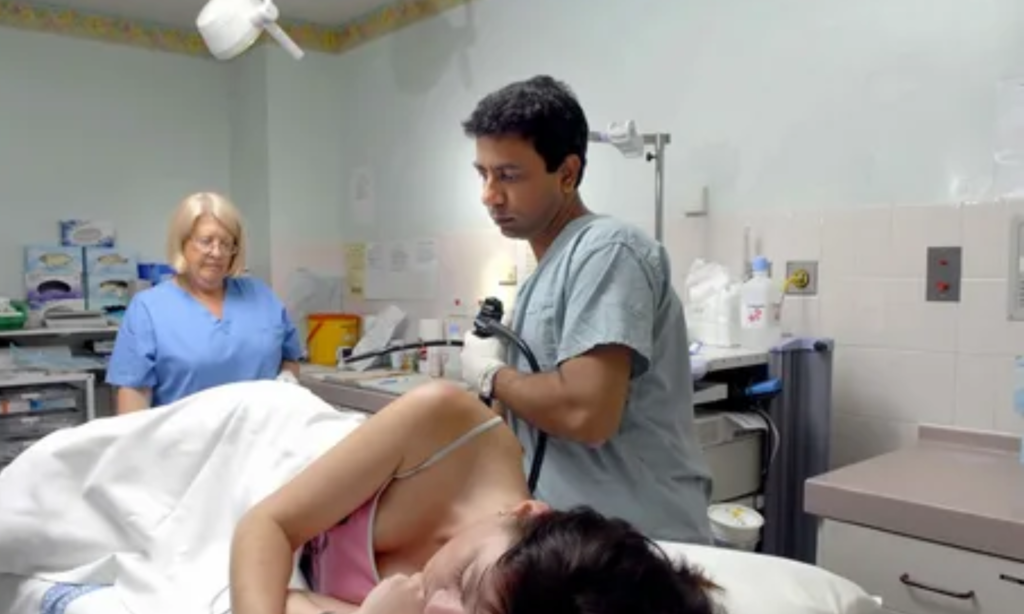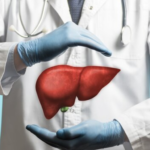
Sigmoidoscopy is a medical procedure used to examine the lower part of the colon, specifically focusing on the sigmoid colon and rectum. It is a valuable diagnostic tool that helps healthcare providers detect abnormalities, such as inflammation, polyps, tumors, or bleeding, in the colon and rectum. In this blog, we’ll delve into the details of sigmoidoscopy, its purpose, procedure, benefits, and what to expect during and after the examination.
Purpose of Sigmoidoscopy
The main objective of sigmoidoscopy is to assess the well-being of the lower gastrointestinal tract, with a specific focus on the sigmoid colon and rectum. It is often recommended for patients experiencing symptoms such as rectal bleeding, changes in bowel habits, abdominal pain, or to screen for colorectal cancer and other gastrointestinal conditions.
How Sigmoidoscopy Works
During a sigmoidoscopy, a thin, flexible tube called a sigmoidoscope is inserted into the rectum and advanced through the sigmoid colon. The sigmoidoscope has a light and a camera at its tip, allowing the healthcare provider to visualize the interior of the colon and rectum on a monitor. This real-time imaging helps identify any abnormalities or areas of concern.
Types of Sigmoidoscopy
There are two main types of sigmoidoscopy: flexible sigmoidoscopy and rigid sigmoidoscopy.
- Flexible sigmoidoscopy: is widely utilized and is the predominant form of sigmoidoscopy. The flexible sigmoidoscope can bend and maneuver through the colon, providing a comprehensive view of the sigmoid colon and rectum.
- Rigid Sigmoidoscopy: In this type, a rigid sigmoidoscope is used, which does not bend. It is primarily used for specific diagnostic purposes and may not offer as much flexibility as the flexible sigmoidoscope.
Procedure Overview
Before the sigmoidoscopy, patients may be asked to follow certain dietary restrictions or undergo bowel preparation to ensure a clear view of the colon. Bowel preparation may involve taking laxatives and/or enemas to empty the colon.
During the procedure, patients may receive a sedative or pain medication to make them more comfortable. The sigmoidoscope is gently inserted into the rectum, and air may be introduced to expand the colon for better visualization. The healthcare provider carefully examines the colon lining, looking for any abnormalities, taking tissue samples (biopsies) if necessary, and removing polyps or performing other minor procedures as needed.
Benefits of Sigmoidoscopy
Sigmoidoscopy offers several benefits:
- Early Detection: It can detect colorectal cancer, polyps, and other gastrointestinal conditions at an early stage, improving treatment outcomes.
- Diagnostic Accuracy: Sigmoidoscopy provides a direct visual inspection of the colon, allowing for accurate diagnosis and targeted treatment.
- Minimally Invasive: The procedure is minimally invasive and typically well-tolerated by patients.
- Preventive Care: Removal of polyps during sigmoidoscopy can help prevent colorectal cancer.
- Guided Treatment: Sigmoidoscopy helps guide further treatment plans based on the findings, such as additional imaging tests, biopsies, or surgical interventions if needed.
- Cost-Effective: Compared to colonoscopy, sigmoidoscopy is often more cost-effective while still providing valuable diagnostic information.
What to Expect After Sigmoidoscopy?
After the procedure, patients may experience minor discomfort, bloating, or gas, which usually subsides quickly. In most cases, patients can resume their normal activities shortly after the sigmoidoscopy. The healthcare provider will discuss the findings of the procedure and any follow-up recommendations, such as further testing or treatment.
Summary
Sigmoidoscopy is a valuable diagnostic procedure for evaluating the sigmoid colon and rectum, aiding in the detection of gastrointestinal abnormalities. Dr. Prasad Bhate, a highly experienced Gastroenterologist located in Baner, Pune, specializes in sigmoidoscopy and other gastrointestinal procedures. Visit Dr. Prasad Bhate’s clinic for expert care and comprehensive gastrointestinal services. He is committed to offering top-notch care and guidance to his patients, ensuring their digestive health and overall well-being are optimized.




